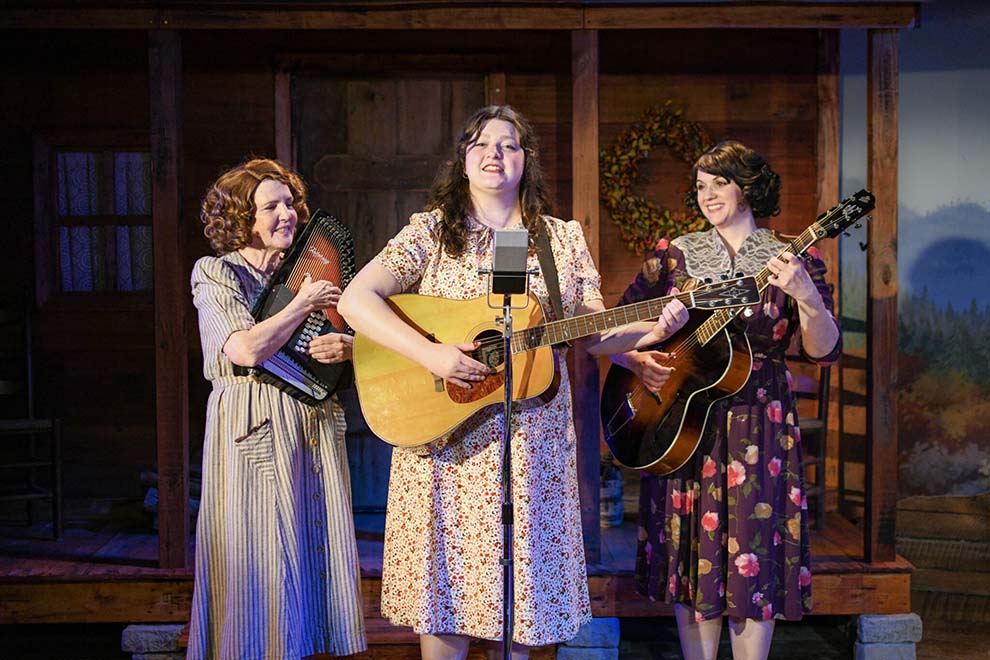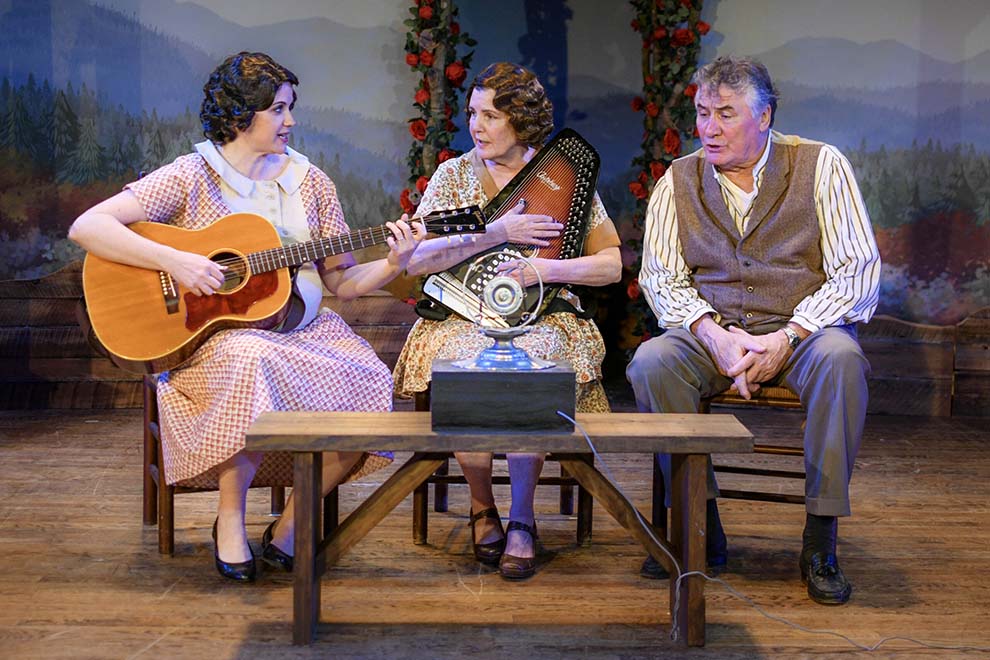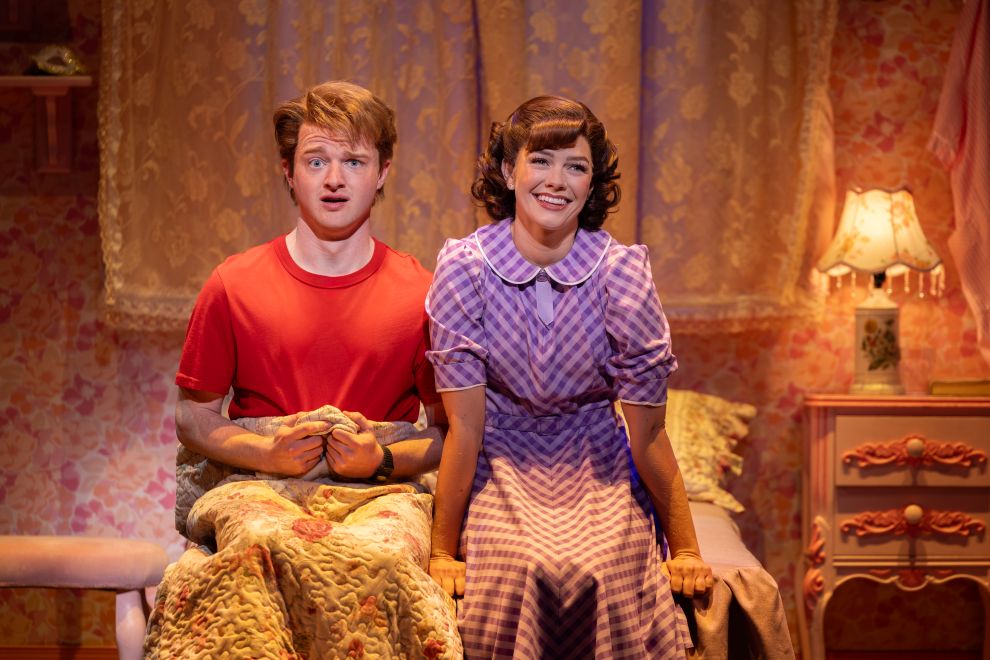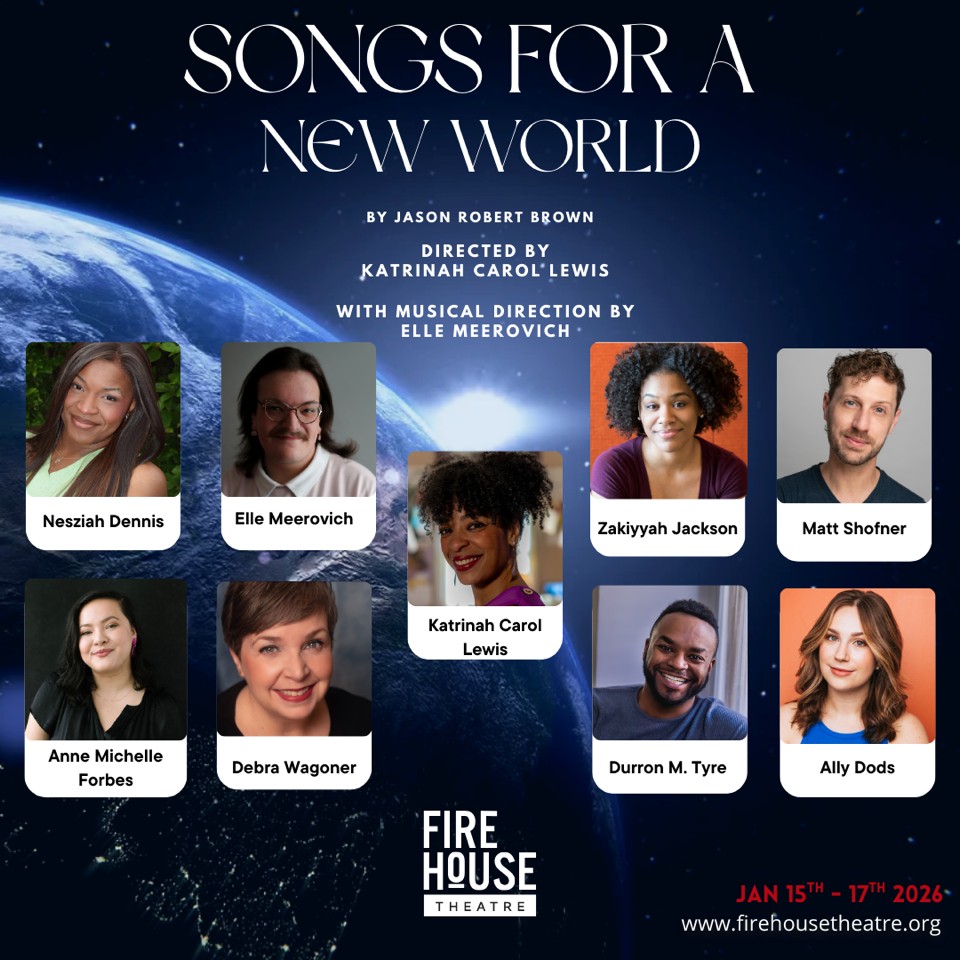The story goes that A.P. Carter’s mother, Mollie Bays Carter, was almost hit by lightning eight months into pregnancy. She would point to that moment when she explained A.P.’s nervous energy and the tremors he experienced throughout his life. The family said he was “marked.” It sounds like a tall tale – fitting for one of the artists most responsible for bringing folk music to a mass audience and cementing its legacy in popular music history.
Keep on the Sunny Side – Sharing Virginia’s Stories
Douglas Pote’s musical play Keep on the Sunny Side makes a compelling case for the enduring importance of the original Carter Family band, showcasing their songs in a biographical narrative that spans sixty-two years. The current production at the Swift Creek Mill Theatre is a beautifully performed and sentimental reflection on the group’s place in music history and their Virginia roots. From the evocative Appalachian scenery to the arrangements of the Carter Family’s songs, this production is a celebration of those who aspire to share their lives through music.
The spoken parts of the play lean towards the didactic, jumping between family members’ meditations on the group after its dissolution and straightforward depictions of major moments in the Carter Family’s career. The script is, as artistic director Tom Width noted before the show, thoroughly researched and draws out some interesting thematic questions about autonomy and identity in the machinery of the music industry. A few comedic sequences and moving family moments (especially those featuring Mikaela Hanrahan as A.P. and Sara’s first daughter, Janette) add dimension to the historical account. But the focus is mostly, and rightfully, on the music.
Keep on the Sunny Side Features 27 Songs

In total, the show includes twenty-seven songs recorded by the original Carter Family. The vocal performances are wonderful, and the songs are able to carry the weight of developing the characters as a result. Jackie Frost gives a standout singing performance as Sara Carter. Her tone is clear, beautiful, and exceptionally impactful during some of the Carter Family’s more plaintive songs. Emily J. Cole and Drew Perkins, reprising their roles as Maybelle and A.P. Carter, respectively, capture the humor and frustration of their characters’ personal and professional relationships. The Carter Family didn’t write all of the songs they recorded, but Keep on the Sunny Side pays special attention to A.P.’s belief in songcraft as poetry and his mission to uncover and document Appalachian folk songs.
One of this production’s strengths is the way it introduces music into every part of the physical and emotional landscape. Cast members play instruments during songs, but also accompany several of the spoken monologues. Guitars hang around the set’s built environment, allowing the performers to simply pick them up and play — the effect is a sense that music is spontaneous, all around, and intrinsic to the Carters’ everyday experience. Much of the play’s humor is conveyed through the instruments, too, and Greg DeBruyn and Bryan Harris (each in several roles) deliver some of the funniest moments without saying a word. By approaching musical performances this way, the production highlights Maybelle’s distinctive picking style and pays homage to her technical innovation and influence as a musician.
Under the technical direction of Liz Allmon, Adam Dorland’s scenic work and Joe Doran’s lighting design also create a concrete sense of place in a story that crosses the continent but centers emotionally in Maces Spring, Virginia. The multipurpose and abstract pavilion at stage left contrasts with the visually specific exterior of Sara’s family home. The painted mountain set and lighting choices emulate the way that the Blue Ridges completely transform depending on the time of day. Creative sound choices, like distortion on some microphones, also highlight the tension between achieving commercial success and the alienation caused by touring.
Keep on the Sunny Side considers how the Carter Family self-consciously viewed their purpose as artists and their influence on new generations of musicians. The play itself is also part of this process of forming a collective sense of memory and legacy around the band. While Keep on the Sunny Side is clearly written and performed from a place of reverence, it leaves room to understand the Carters as individuals with strengths, weaknesses, and dreams. It offers a perspective on popular music history that is uniquely and lovably Virginian.
Back at the Swift Creek Mill Theatre after eleven years, Keep on the Sunny Side runs through May 6. Visit swiftcreekmill.com for tickets and more information.




